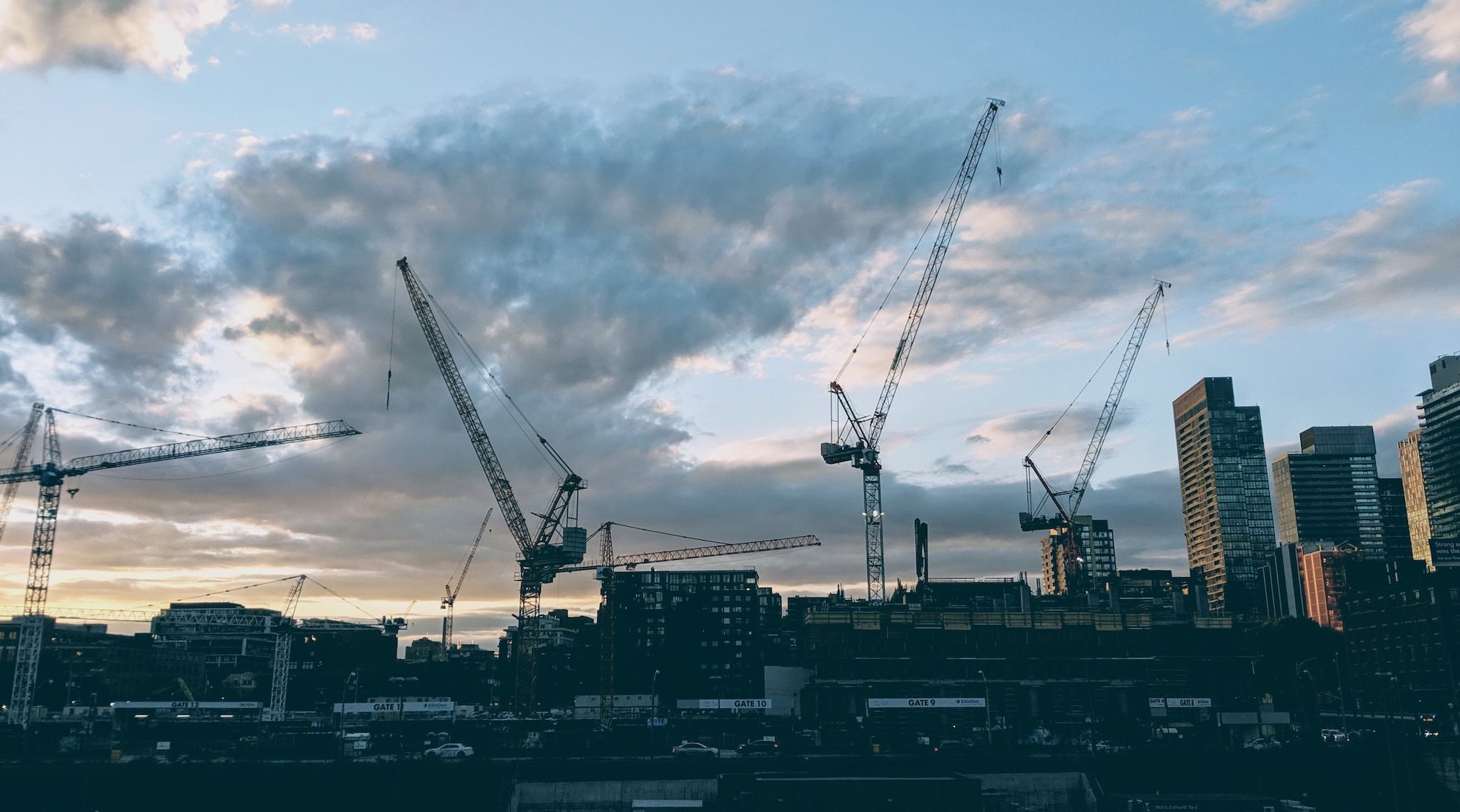
Construction in the City: How Changes to Toronto’s Noise Bylaw Impact Jobsites
The City of Toronto is sitting up and paying attention to noise—and updating the noise bylaw that is in place. New condos and office towers have re-energized the downtown core but with more people living in the area, construction noise is becoming more of an issue.
Recent changes to the City of Toronto’s noise bylaw will have a big impact on how and when certain aspects of construction are done in the city. The City has removed current construction exemptions from the noise bylaw and now restricts builders from pouring concrete or using heavy cranes for work late into the night.
The Biggest Change to City of Toronto’s Noise Bylaw
The most significant change is the ability to pour or finish concrete. Anyone in the construction industry will tell you that once you start pouring concrete, you can’t stop and come back to it. It’s a chemical process that takes time and must be completed according to engineering specifications.
The concrete finishing process cannot wait until the next day or it will be completely dry and the ability to level and smooth it is gone. In the past, continuous pouring of concrete was exempt from the noise bylaw limits, which meant crews could continue to work into the night to finish a pour with no restrictions.
The rumbling of cement trucks will no longer be allowed without special permission. With the recent changes, crews can only operate during the hours of 7am and 7pm, Monday to Friday; 9am to 7pm on Saturdays; and are not allowed to work at all on Sundays and statutory holidays.
Understanding the Implications of the Noise Bylaw Changes
Many in the construction industry have raised concerns about the potential delays this will cause projects. Some are warning it will mean extended roadway closures as more trucks will be required on the road for a longer period of time to ensure all of the concrete is poured before the 7pm cutoff.
However, the City did allow for exceptions—in order to continuously pour throughout the night, contractors will need to request an exemption permit. Modelled much like the New York City noise bylaws, the exemption application isn’t fully defined but may require a noise mitigation plan, and/or noise monitoring as part of the process. This is a new requirement.
A noise mitigation plan ensures steps are taken to confirm the work is done in a quieter way to minimize disruptions in the area. The monitoring makes sure the noise predictions are in line with what people are experiencing. The City has not yet provided any clear guidance on what a Noise Mitigation Plan must include. It may be left up to the engineer reviewing the application as to what is included or not. Aercoustics continues to work with the City to stay abreast of these issues.
While the details are still being confirmed, we do have a better understanding of what kind of noise the City is trying to reduce. The bylaw adds a definition for “Unreasonable Noise” to mean “Any noise that would disturb the peace, rest, enjoyment, comfort or convenience of a reasonable person in the circumstances. Unreasonable noise does not include commonplace household or workplace sounds such as sound from furniture being moved, children playing or people engaging in conversation.”
With this in mind, here are things to consider when applying for an exemption to Toronto’s new Noise Bylaw:
1) List Equipment Being Used:
Provide a detailed list of all of the equipment being used such as jackhammers, excavators, dump trucks, etc.
2) Outline Mitigation Efforts:
Explain what you plan to do to reduce noise, such as setting up noise barriers. You will be required to explain the type of barrier, where they will be set up and other details. Certain types of equipment create a greater amount of noise and vibration so be sure to get expert advice into what mitigation efforts are required.
3) Hire an Expert:
It is expected that the noise mitigation plan will need to be prepared and signed by a professional engineer or acoustical consultant. Engineers are highly-skilled in their particular area of expertise. When it comes to drafting a document like this, you want to ensure that you engage an expert who understands noise, vibration and acoustical issues so they can cover every detail and pre-emptively address any possible concerns based on their experience and knowledge.
Working Towards Better Noise Bylaws
Generally speaking, most developers and builders do what they can to minimize undesirable noise for neighbours and take great efforts to ensure minimal disruption. While many in the industry may have preferred to maintain the original exception, having the option of a permitting process is better than the alternative, which would have blocked all after-hours construction altogether.

